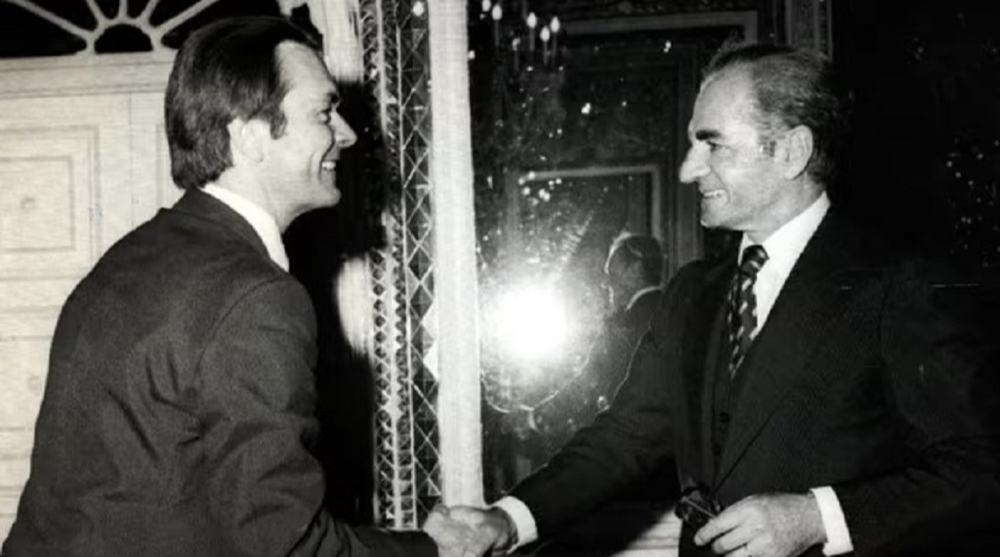
The Shah of Iran Mohammad Reza Pahlavi (R) welcomes Britain's then foreign secretary David Owen to the Niavaran Palace in Tehran in 1977. (Photo by Popperfoto.com)
London, August 17 (RHC)-- The former British foreign secretary says London should finally acknowledge its role, along with the United States, in the 1953 coup against the democratically-elected government of Iranian Prime Minister Mohammad Mosaddegh.
David Owen made the remarks to The Guardian newspaper on Tuesday, on the occasion of the 70th anniversary of the coup. The coup was orchestrated by the British intelligence agency MI6 and its American counterpart CIA under the name “TPAJAX Project” or “Operation Ajax.”
“There are good reasons for acknowledging the UK’s role with the U.S. in 1953 in overthrowing democratic developments. By admitting that we were wrong to do so and damaged the steps that were developing towards a democratic Iran, we make reforms now a little more likely,” he said.
Richard Norton-Taylor, the author of The State of Secrecy, a book about UK intelligence and the media, also slammed the UK for neither admitting nor denying its role in the coup. “It is sad, absurd and, indeed, counterproductive for the British government to continue to hide behind its age-old mantra of ‘neither confirm nor deny’ and still refuse to admit MI6’s leading role in Mosaddegh’s overthrow when so much, including official CIA documents, has been revealed about it for so many years.”
The U.S. formally admitted its role in the coup 10 years ago with the declassification of intelligence documents, which made clear that the ousting of Mosaddegh was a joint CIA-MI6 project.
In August 1953, the coup set off a series of events, including riots on the streets of the capital Tehran, leading to the overthrow and arrest of Mosaddegh, who was popular in Iran for nationalizing the country’s oil industry and taking it back from largely British control.
It also enabled the return of the pro-Western monarch, Mohammad Reza Pahlavi, from exile in Italy and consolidated his rule for the following 26 years until the victory of the 1979 Islamic Revolution, led by Imam Khomeini.
Mosaddegh, who was convicted of treason by a court martial after the coup, served three years in solitary confinement and eventually died under house arrest in exile in 1967. The historic overthrow, though, is still given as a reason for the Iranians’ mistrust of Britain and the United States.
Experts say the coup was aimed at making sure the Iranian monarchy would safeguard the West’s oil interests in the country.

